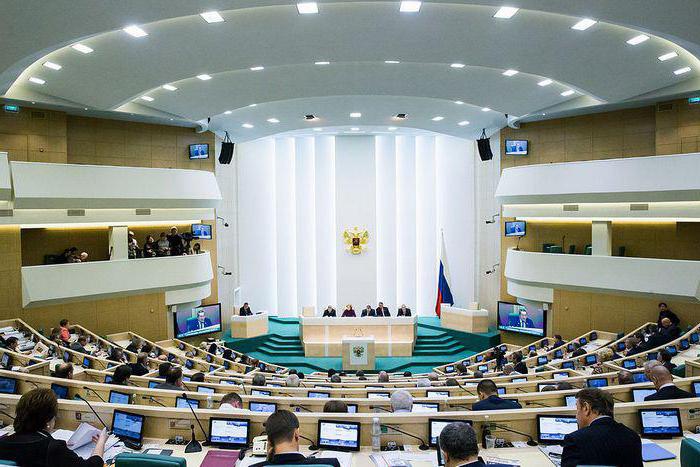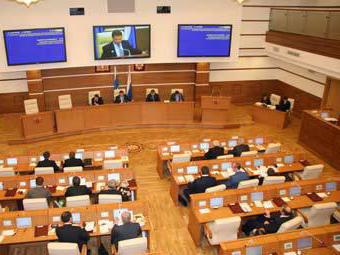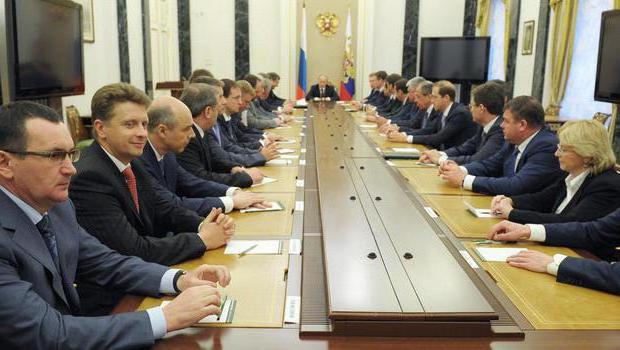Representative power is seen as a set of powers delegated by the people or part of them to elected officials. They are combined in a special institution for a specific period. Representative power is also a collection of institutions authorized by the population. Let us further consider its structure, main lines of activity, and features of formation.
General information
In the parliamentary form of government, the representative body is vested with broad powers. His competence includes, inter alia, the appointment of the president. The head of state does not have real power.
The presidential form of government involves the independent election of parliament and the first person of the country. The head of state has the right to dissolve parliament.
The representative body of the Russian Federation is the bicameral Federal Assembly. It includes the State Duma and the Federation Council. There are also municipal and regional legislative (representative) bodies.
Federal level
The State Duma, as a representative body of the FS, is formed by the election results. They are held every 5 years. There are 450 elected representatives in the State Duma. Half of them are selected directly in one round by voting in single-member districts. The rest is formed by political associations that were able to overcome the five percent barrier. The Federation Council includes 2 representatives from each region - one from the executive and legislative bodies. In addition to them, persons appointed by the President are present in the Federation Council. Their number is not more than 10% of the total number of members. 
Activities of the State Duma
She is empowered in accordance with constitutional provisions. This representative body:
- Gives consent to the President for the appointment of the highest official (Chairman) of the Government.
- Announces amnesty.
- He listens to the annual reports of the Government on the results of its work, including on issues that were raised before it by the State Duma.
- Appoints and dismisses the chairmen of the Accounts Chamber and the Central Bank, as well as the Russian Federation Commissioner for Human Rights.
- Decides on trust in the Government.
- Charges against the President for removal from office.
The adoption of federal regulations is carried out by a majority of the total number of deputies, unless otherwise provided in the Constitution. 
Competence of the Federation Council
The powers of this body include:
- Approval of the boundaries of the territories of the country's regions.
- The decision on the possibility of using the Russian Armed Forces outside the state.
- Approval of presidential decrees on the introduction of a state of emergency or martial law.
- Appointment of judges of the Constitutional Court, Supreme Court, the Prosecutor General and his deputies, deputy chairman of the Accounts Chamber and 50% of its auditors.
- Removal from the post of President.
- The appointment of the election of the head of the country.
On a mandatory basis, the Federation Council reviews the laws adopted by the State Duma on the following issues:
- State budget.
- Federal fees and taxes.
- Money issue, customs, credit, currency, financial regulation.
- Denunciations and ratifications of international agreements of the Russian Federation.
- War and peace.
- Status and protection of the state border of Russia.

Regional level
The formation of representative bodies in the subjects is carried out on the basis of direct, universal, equal and secret ballot. Their term of office is 4 years.The number of regional institutions ranges from 27 to 130 people. The order of creation and the quantitative composition of regional parliaments are determined in constitutions and other legal acts.
The work of regional institutions
The competence of representative bodies in the subjects consists of the following groups of powers: constitutional, socio-cultural and economic construction, external relations. The republican representative structures are working in the first direction. They approve the constitutions, amend and supplement them, control the order of implementation of the adopted provisions. In addition, the competence of regional parliaments includes resolving issues related to the holding of referenda, the appointment of elections of heads of subjects and deputies, and the approval of the structure of executive bodies.
In the field of socio-cultural and economic development, long-term plans, programs, and budgets are being adopted. In the edges, areas, cities of federal significance representative bodies are called legislative assemblies, thoughts, etc. They are formed on the basis of secret, universal, equal and direct voting.
The term of office of the elected deputies is no more than 5 years. Their competence includes:
- Approval of the regional budget.
- Introduction, cancellation of fees, taxes, duties and other payments, the establishment of preferential regimes for their deduction.
- Regulation of the terms of placement of bonds, loans.
- Approval of social, economic, national and cultural development programs.
- Regulation of activities and the procedure for the formation of foreign exchange and extra-budgetary revenues, the adoption of reports on and use.
- Approval of national programs of privatization, use, ownership, disposal, property management.
- Regulation of the procedure for the provision and withdrawal of land for objects of regional and interregional, as well as federal significance, the use of natural resources and their protection.

- The provision of subsidies, loans, subventions from budget funds to existing structures of territorial self-government.
- Regulate the use and protection of objects that have historical, scientific, cultural value that are within the boundaries of the subject.
The powers of regional bodies also include the establishment of external relations, the ratification and denunciation of international agreements and treaties.
Municipal system
One of the ways of direct expression of the will of the population is local self-government. It is carried out in municipalities - rural and urban settlements, united by a common territory, cities or their parts. The local government has a certain degree of independence. He himself decides on issues of territorial importance, disposes, owns and uses municipal property.
General powers of municipal institutions
The local government body resolves issues related to:
- Maintenance and use of municipal non-residential and housing stock.
- Organization and support of the activities of pre-school educational institutions, secondary educational and professional educational institutions, clinics and hospitals.
- Public order protection.
- Ensuring the sanitary welfare of citizens.
- Organization and provision of municipal utilities.
- Road construction and maintaining proper condition of highways of territorial significance.
- Landscaping and landscaping MO.
- Other areas related to its jurisdiction.

Representative bodies of self-government
They are elected structures that have the right to express the interests of the population and make various decisions on its behalf. Each deputy of the representative body is elected by citizens residing in the territory of the Moscow Region, by equal, secret, universal and direct vote in accordance with regulatory acts of federal and regional significance.The structure is considered formed if at least 2/3 of the established number of members were selected. The quantitative composition and powers of the representative body are determined in the charter of the Moscow Region.
Exceptional Competency
Local representative bodies make decisions collectively. The exclusive competence of the institutes includes:
- Adoption and amendment of the charter of the Moscow Region.
- Approval of the budget and report on its implementation.
- Establishment, cancellation and change of territorial fees and taxes in accordance with the Tax Code.
- Adoption of programs and plans for the development of the Ministry of Defense, approval of reports on their implementation.
- Establishment of management procedures, disposition of property that is municipal property.
- Determining the rules for making decisions on the formation, reorganization, liquidation of enterprises and institutions located in the territory of the Moscow Region, calculation of tariffs for their services.
- Establishment of the procedure for participation in inter-municipal cooperation associations.
- Definition of the rules of organizational and material and technical support of the work of local authorities.
- Control over the fulfillment by authorized structures and their officials of their duties in the field of resolving issues of territorial significance.
Other areas of work of representative bodies are defined in federal legislation and other regulatory acts adopted in accordance with it. 
Conclusion
The Constitution of the Russian Federation establishes a separation of powers into 3 branches. Each of them is a relatively independent area of activity of the authorized structures that form them. Along with this, the work of institutions of all branches is carried out with constant interaction. In accordance with constitutional provisions, the main carrier of power is the people. He implements it in various ways. In particular, the will of the population is expressed through elected representative bodies.
Regulatory acts enshrines their three levels: federal, regional and municipal. The greatest independence is enjoyed by local legislative structures. Their powers include the solution of territorial issues, as well as problems that are not within the competence of regional and federal institutions.
It is believed that local authorities are closest to the population. They make decisions taking into account the situation in the territory of a particular municipal entity. Local institutions do not report to federal ones. However, all normative acts that are adopted at the municipal level must comply with the Constitution and the Federal Law. The formation of representative bodies of federal, local, regional significance is carried out through elections. The powers of structures are limited to specific terms.
